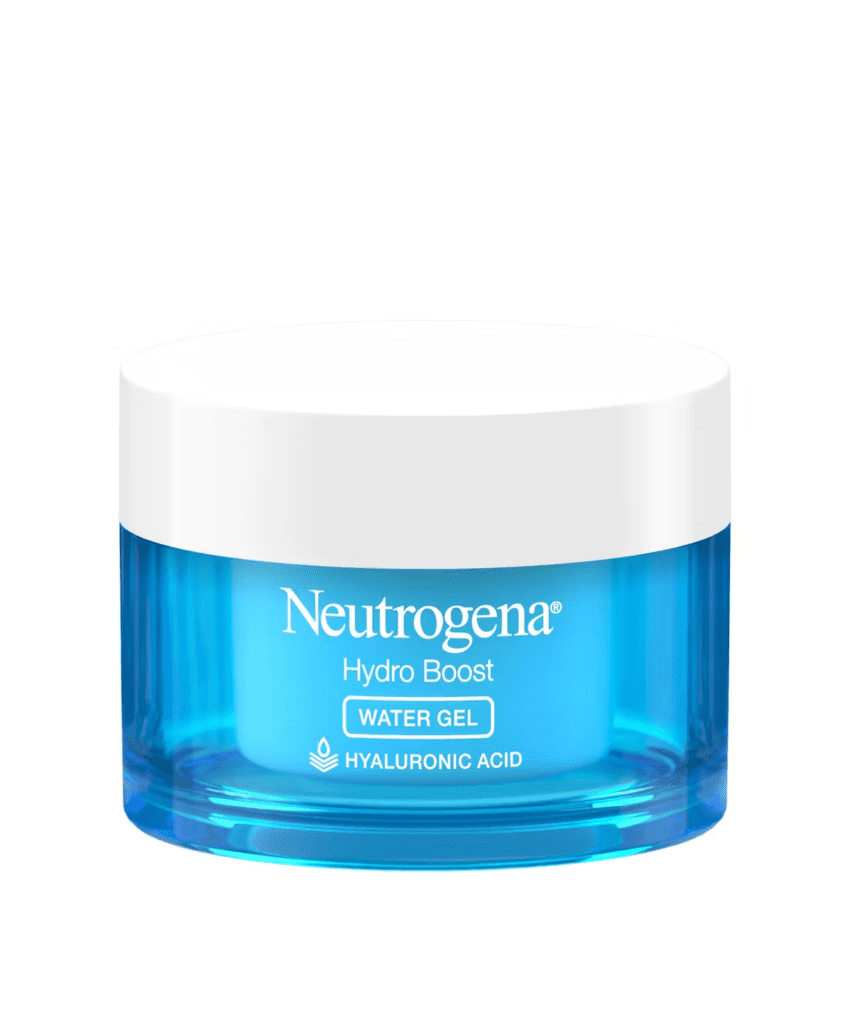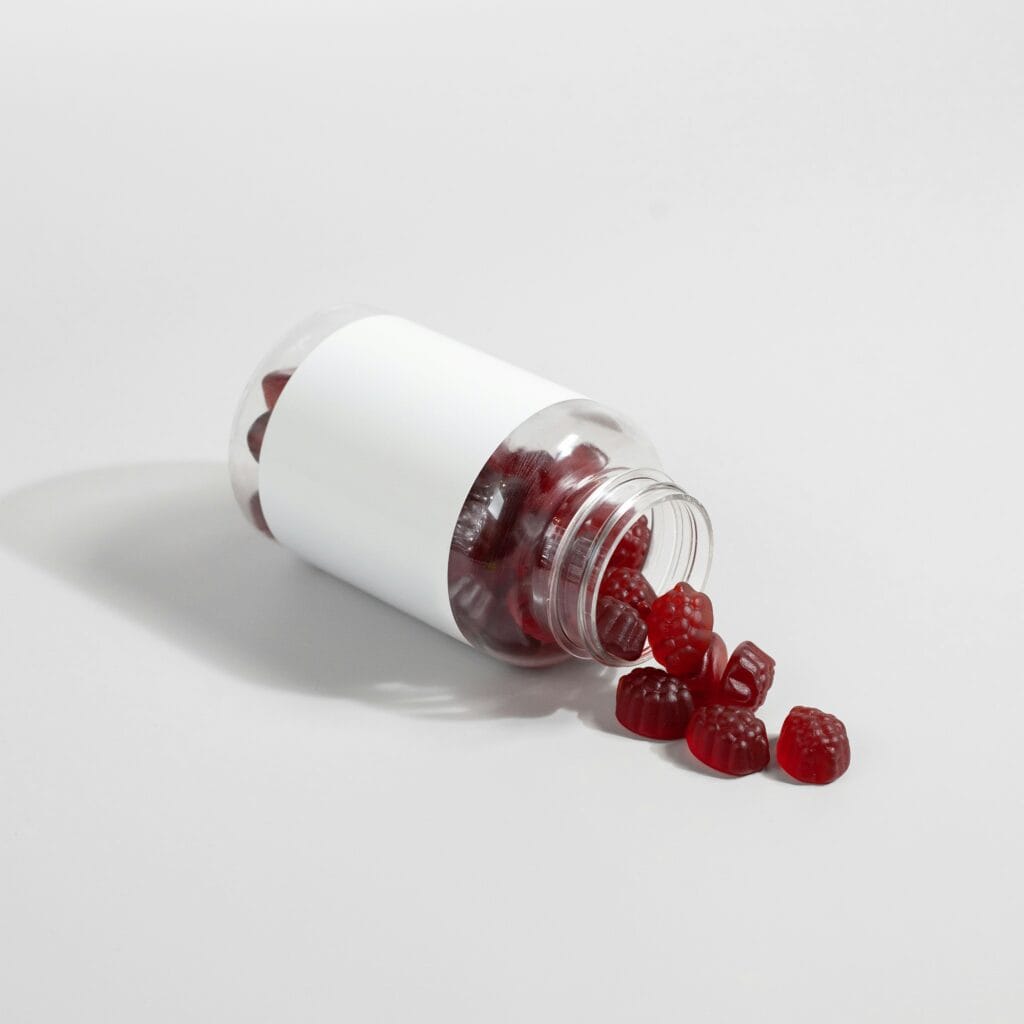
We all probably love our skincare routines and the glow our products give. But healthy skin is not just about external care; it’s also about nourishing your body from within. Certain vitamins and supplements can enhance skin appearance and address specific issues like dryness, acne, and ageing.
This article explores the essential nutrients for skin health, their natural sources, and the potential consequences of deficiencies.
Why Are Certain Supplements and Vitamins Important for the Body?
Our bodies are intricate machines that rely on a delicate balance of nutrients to function optimally. Some of these nutrients, essential for skin health, can be sourced from food or produced within the body, while others may require something extra.
Vitamin A
This fat-soluble vitamin is crucial for cell growth and repair, including skin cells. It’s found in abundance in carrots, sweet potatoes, and spinach. A deficiency can lead to dry, scaly skin and increased susceptibility to infections.
Beyond cell growth and repair, Vitamin A also helps regulate the production of sebum, an oily substance that keeps skin moisturized. It is particularly beneficial for individuals with acne as it can help to unclog pores.
Vitamin C
A potent antioxidant, vitamin C protects the skin from damage caused by free radicals. It also plays a vital role in collagen production, a protein essential for skin elasticity. Citrus fruits, strawberries, and broccoli are excellent sources. In addition to its antioxidant properties, Vitamin C can help to brighten the complexion by reducing hyperpigmentation. It also plays a role in wound healing by promoting collagen synthesis and blood vessel formation.
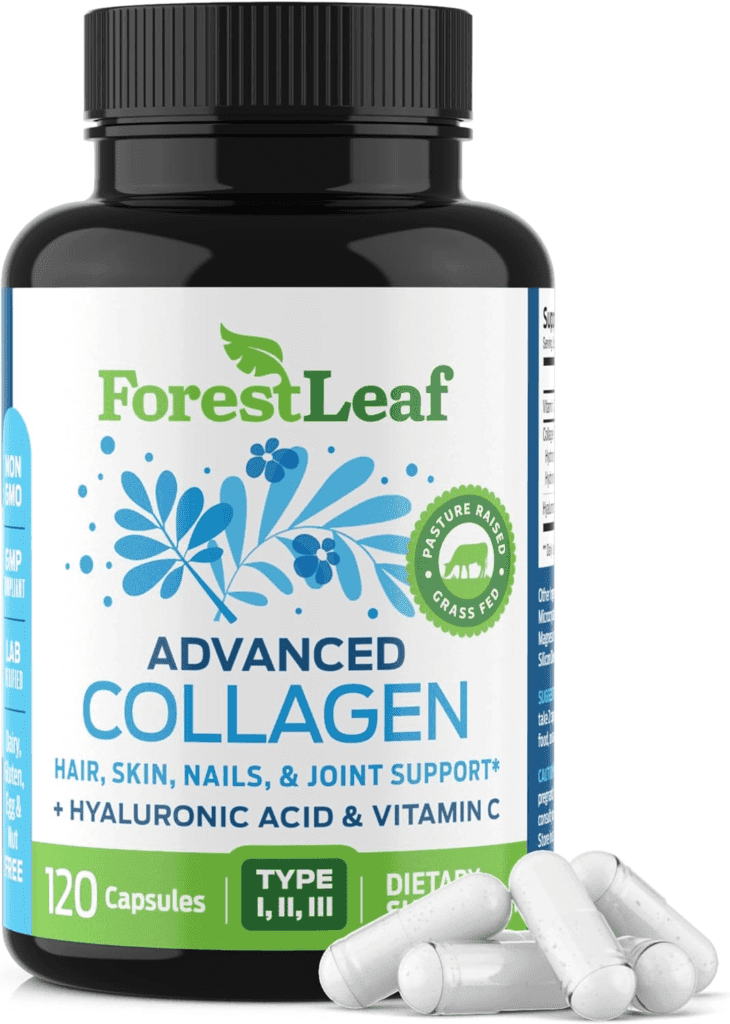
ForestLeaf Advanced Collagen: Contains Collagen and Vitamin C.
Vitamin E
Another antioxidant, vitamin E helps protect the skin from sun damage. It’s found in nuts, seeds, and vegetable oils. A deficiency can lead to dry, scaly skin. This vitamin not only protects against sun damage but also has anti-inflammatory properties, which can be beneficial for conditions like eczema and psoriasis. It helps to retain skin moisture, preventing dryness and flakiness.
Vitamin D
Often called the “sunshine vitamin,” vitamin D is essential for calcium absorption, but it also plays a role in skin health. While the body produces vitamin D when exposed to sunlight, it’s also found in fatty fish, egg yolks, and fortified dairy products. While primarily known for bone health, Vitamin D also plays a role in skin cell growth and differentiation. It helps to maintain the skin’s natural barrier function, protecting it from environmental aggressors.
Zinc
This mineral is involved in numerous bodily functions, including skin repair. It’s found in oysters, red meat, and beans. It is essential for the production of new skin cells and helps to regulate inflammation. It is particularly beneficial for individuals with acne as it helps to reduce sebum production and inflammation.
Omega-3 Fatty Acids
These essential fatty acids have powerful anti-inflammatory effects, which can help to soothe irritated skin and reduce redness. They also help to hydrate the skin from within, improving its elasticity and resilience. They are abundant in fatty fish like salmon, flaxseeds, and chia seeds.
Biotin
Often referred to as the “beauty vitamin,” biotin supports healthy hair, skin, and nails. It helps to strengthen skin cells and improve overall skin tone.
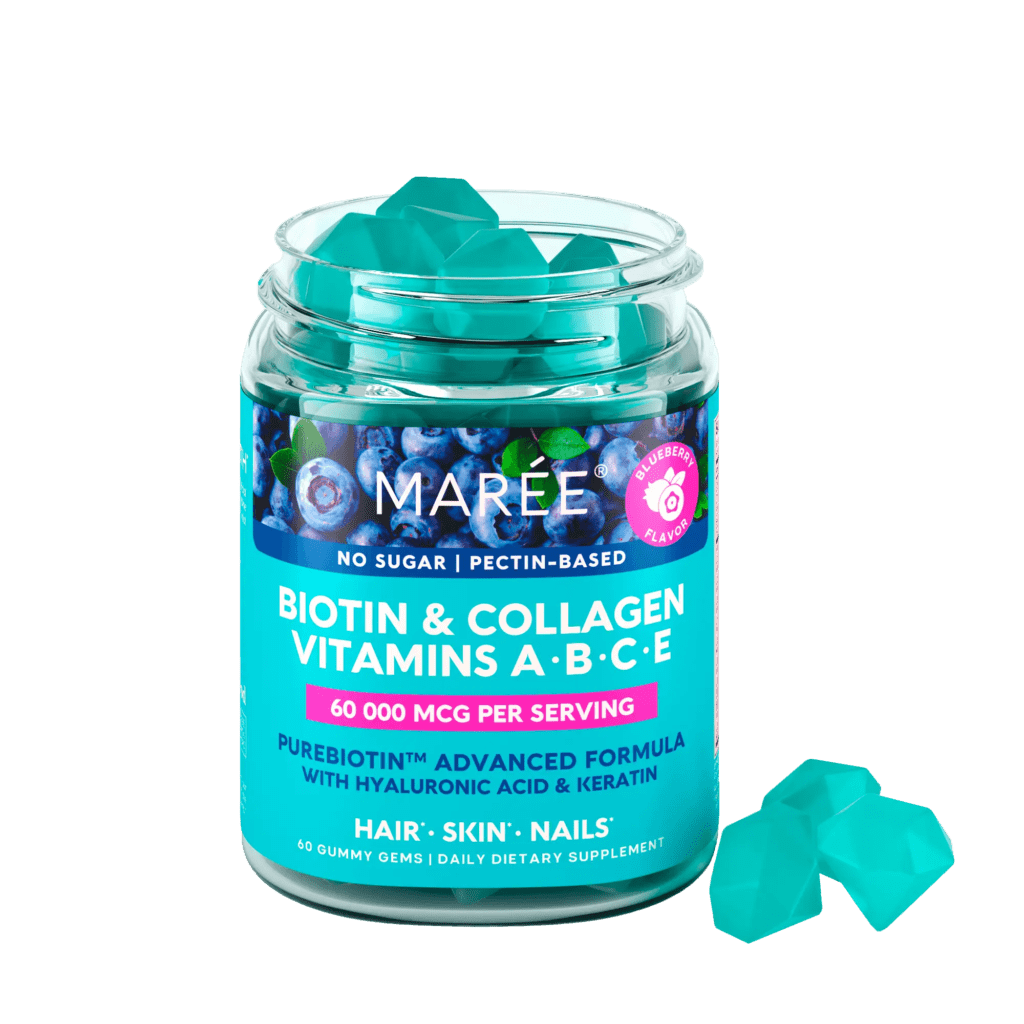
Sponsored product
Maree Biotin & Collagen Supplements: These are perfect because they contain pure biotin as well as other important vitamins (A,B,C and E). It also has hyaluronic acid to strengthen your skin and hair.
Coenzyme Q10 (CoQ10)
This antioxidant helps to protect skin cells from damage caused by free radicals. It also plays a role in energy production, which is essential for skin cell renewal.
Hyaluronic Acid
While technically not a vitamin or mineral, hyaluronic acid is a popular supplement for skin health. It helps to retain moisture in the skin, improving hydration and reducing the appearance of fine lines.
Specific Skin Concerns and Corresponding Supplements
- Acne: Vitamins A, C, and zinc, as well as omega-3 fatty acids, can help to regulate sebum production, reduce inflammation, and promote skin healing. You can find skin products to help with acne here.
- Anti-Aging: Vitamins A, C, and E, along with CoQ10, are essential for collagen production, antioxidant protection, and reducing the appearance of fine lines and wrinkles.
- Dry Skin: Vitamins A and E, as well as omega-3 fatty acids, help to hydrate the skin, improve its barrier function, and reduce flakiness.
- Eczema: Omega-3 fatty acids and zinc can help to reduce inflammation and soothe irritated skin.
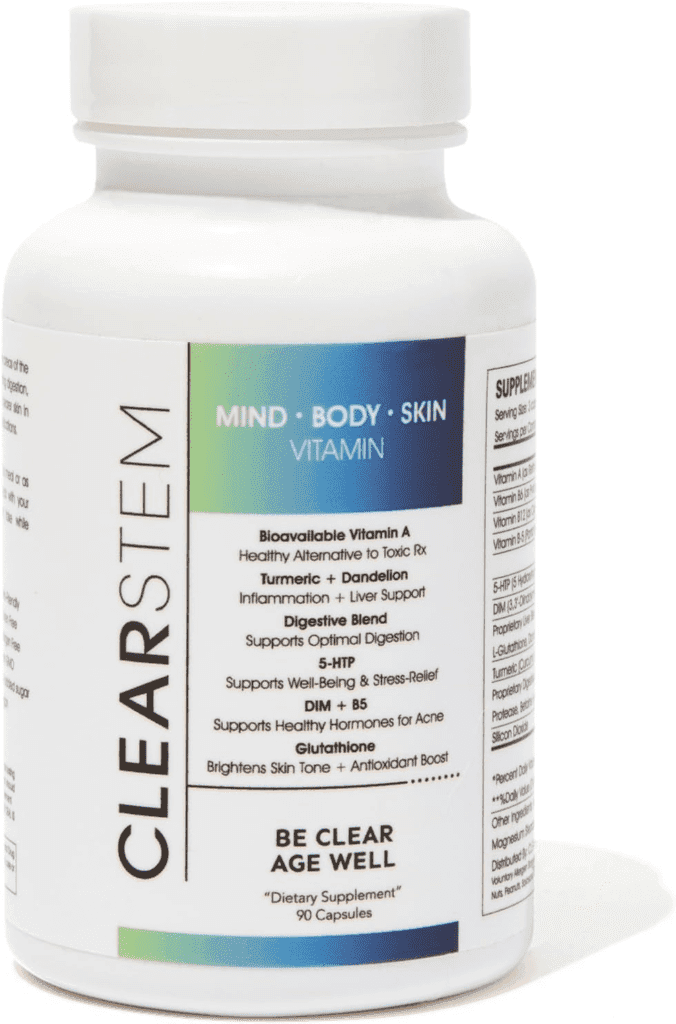
Sponsored product
CLEARstem – MINDBODYSKIN Hormonal Acne Supplement

Sponsored product
Nutrafol Clear Skin Supplement for Women
When to Consult a Doctor About Your Skin Health
While supplements can be beneficial, it’s essential to consult a healthcare professional before starting any new supplement regimen. They can assess your individual needs and recommend appropriate dosages.
3 Questions To Ask Your Doctor When Considering A New Supplement – ReNue Rx
If you experience persistent skin issues, such as acne, eczema, or psoriasis, it’s crucial to seek medical advice. Underlying health conditions might be contributing to your skin problems, and a doctor can provide accurate diagnosis and treatment.
Remember, while supplements can support skin health, a balanced diet, adequate hydration, and sun protection remain fundamental for maintaining healthy, glowing skin.
Disclaimer: This article is intended for informational purposes only and does not constitute medical advice. Always consult with a healthcare professional for personalized guidance



